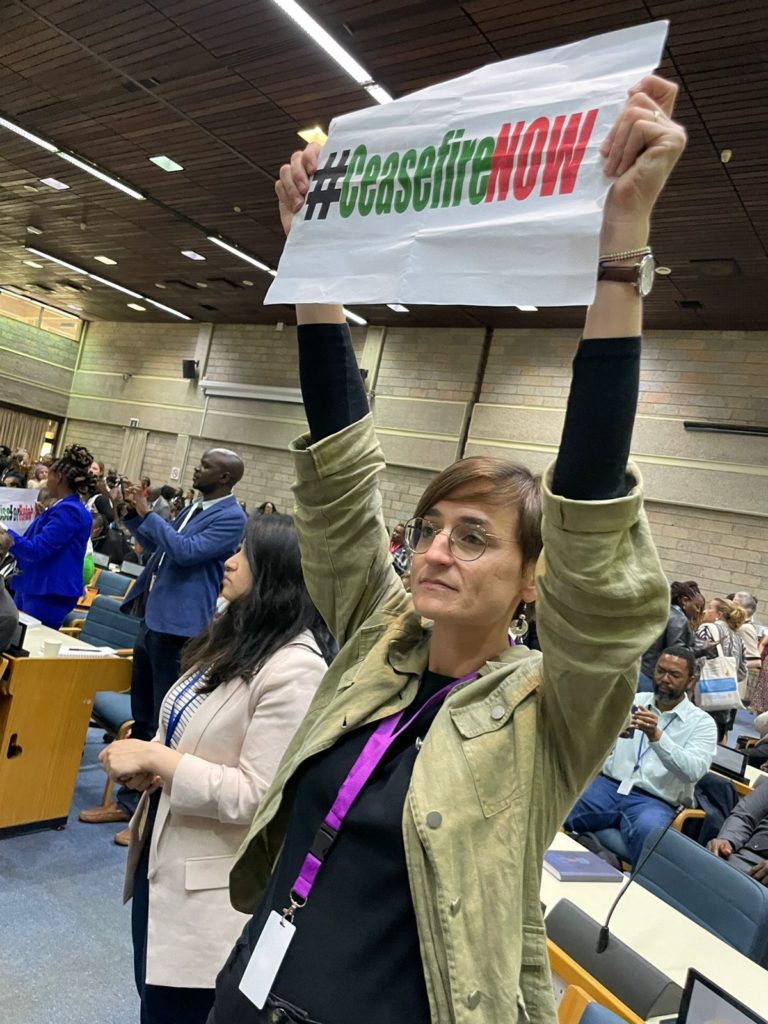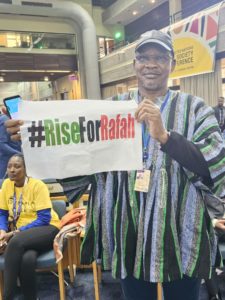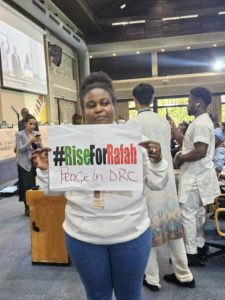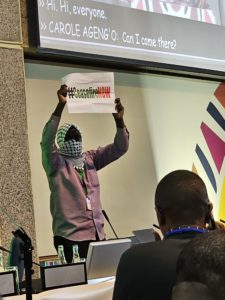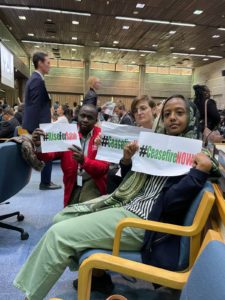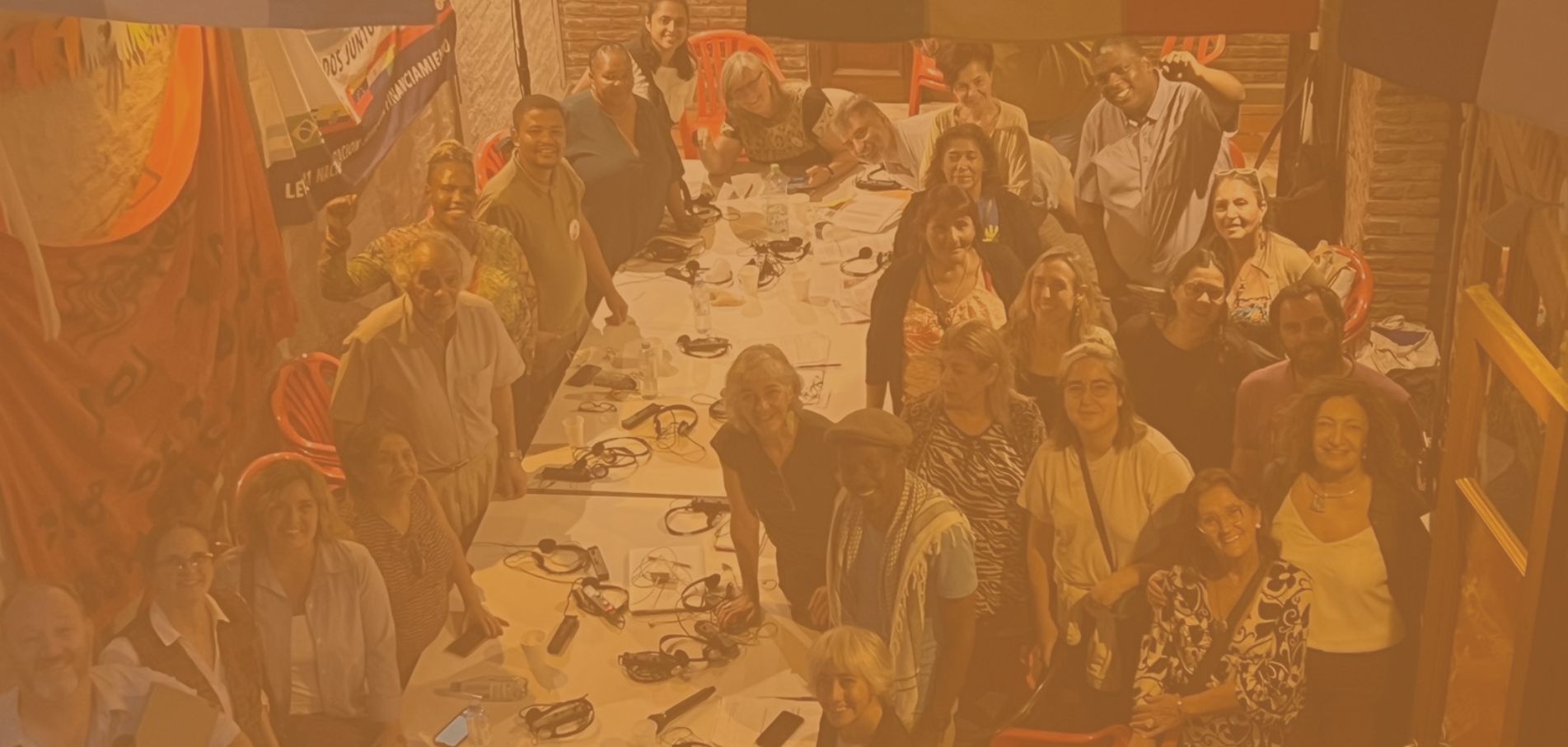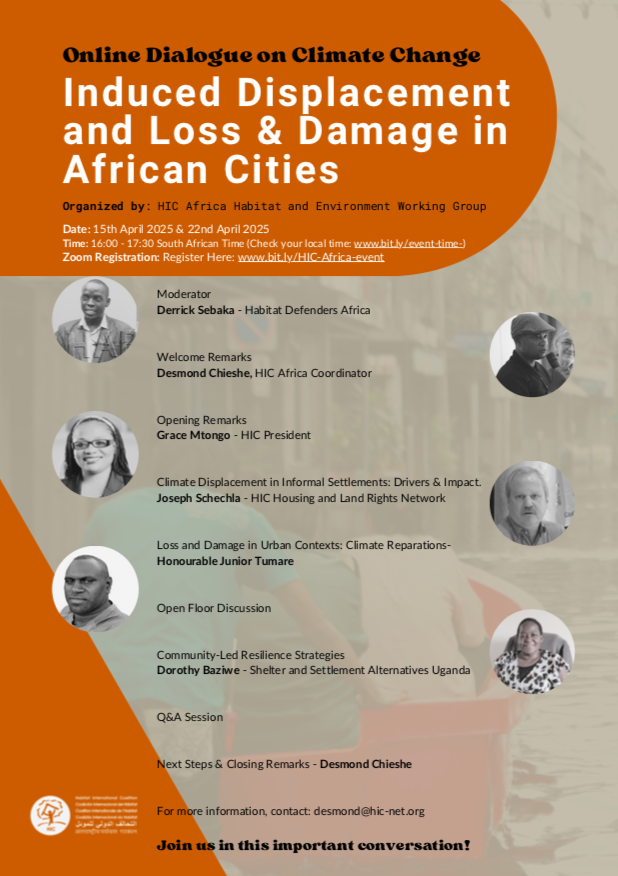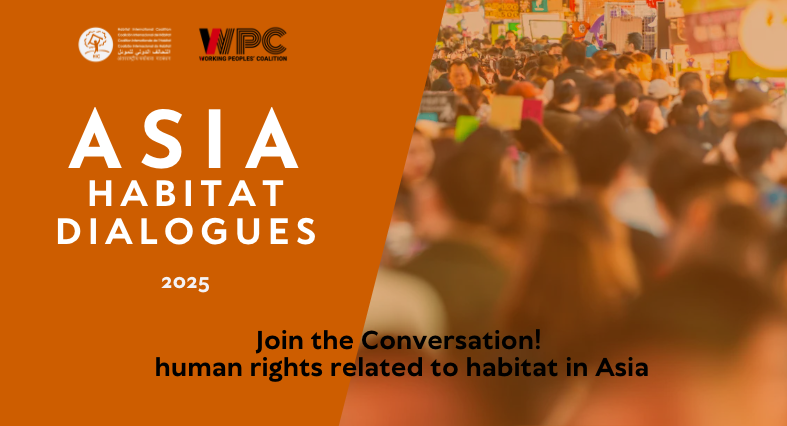Between 9th and 10th of May the 2024 United Nations Civil Society Conference was held in Nairobi, Kenya. Convened by the United Nations Department of Global Communications (DGC), the conference was held in preparation and support of the Summit for the Future and announced as an opportunity for civil society organisations to engage more directly in the preparatory process. The Summit, proposed by the UN Secretary General, will take place between September 22nd and 23rd in New York, resulting in an intergovernmental Pact for the Future, with a stated ambition to “deliver a UN for people and the planet in the 21st century and beyond”.
Under this framework, the Nairobi conference was introduced both as a venue to allow for more inputs from civil society to the ongoing negotiation process around the Pact for the Future, while also providing a space for addressing and strengthening the role of civil society within UN processes in general. The conference was attended by a variety of stakeholders, including NGOs, academia, think tanks, Member States, media, private sector entities and leaders from diverse groups.
Under this framework, the conference’s response to its stated goal to “innovate the way civil society interacts with intergovernmental processes” comes in the format of “ImPACT Coalitions”, which are received with concern from organised civil society networks (read more below). These are pre-existing or new multi-stakeholder coalitions that demonstrate a commitment to engage and support the advancement of certain proposals included in the Pact.
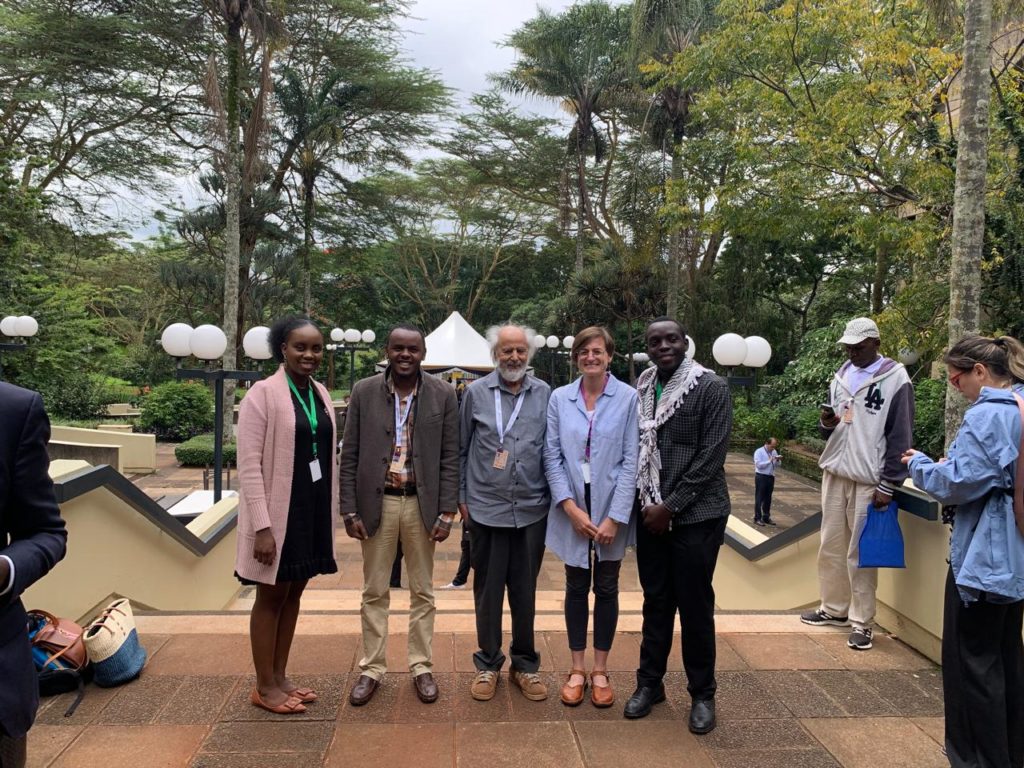
HIC’s positioning: bringing Habitat Rights to the Pact for the Future through a bottom-up, flexible and open participatory process
HIC General Secretariat representatives, as well as HIC members and allies attended the conference, in an effort to identify leeways to construct more substantive and stable participation mechanisms towards the Summit but vis-a-vis the UN in general.
Ahead of it, HIC and its members joined the expressions of concern of other civil society organisations and networks. These concerns expressed during the Conference are due to
- a) the unlikely extent and real impact of the conference;
- b) the ability to truly influence the outcomes of the Summit for the Future and;
- c) particularly, the space for truly meaningful discussion and impact in terms of civil society engagement vis a vis the United Nations.
The current scenario presents a weakening of its ability to fulfil its mandate and increasing corporate capture in which private corporations have increasing influence in decision-making and weight of funding programmes and initiatives.
You can read more here about HIC’s position and consult the statement drafted, building upon previous contributions to calls for inputs for the Pact for the Future draft. These can be broadly summed-up in the following points, also delivered during the conference in plenary statements:
- Calling for a bottom-up, flexible and open consultative process ahead of the Summit for the Future, under the ECOSOC framework;
- For a strong commitment to Habitat related Human Rights in the Pact for the Future, particularly through the inclusion of the human right to adequate housing, harmonized with SDG and New Urban Agenda (NUA) implementation, through approaches that actively end housing unaffordability caused by financialization of housing;
- Grounding the Pact’s commitment on a human rights approach, also advancing mechanisms for accountability and responsibilization regarding human rights violations, holding both States, corporate and private actors accountable.
Main takeaways from the conference:
1) What space for habitat related Human Rights?
The conference confirmed what was already signalised in the zero draft of the Pact for the Future: the housing, land and right to the city agenda, as well as the New Urban Agenda are conspicuously absent both from the current text, as well as from the overall conversation during the conference. Similarly, the first drafts of the SDG Summit Declaration (held in 2023 with the objective of accelerating the commitment to implementing the 2030 Agenda) did not include references to housing and land, which was rectified in the final draft.
This seems to signalise a wider picture of loss of visibility and commitment at the international level with regards to housing and land, which raises significant concerns. Responding to this scenario entails both a short-term strategy to secure representation of housing and land rights in the Pact for the Future, as well as a midlle-term strategy that looks also at a wider picture. Within HIC we are committed to supporting such actions. To find out more how to get involved, see the section below.
2) The imPACT coalitions and role of civil society in the conference
At the core of the conference was fostering the creation of so-called imPACT coalitions, which are seen by many civil society groups with concern and skepticism, by putting more the focus on civil society support of future implementation of the Pact, than on the ongoing negotiations around its content. Moreover, they also raise questions on how an over reliance on “multi stakeholder” approaches risks diluting the impact of organised civil society voices, by using single mechanisms (these coalitions) for mobilising actors with very different interests, resources and mobilisation capacities. Finally, it is not clear how these will interact and measure-up to existing channels and mechanisms such as those of Major Groups and Other Stakeholders.
As a response, we defend two proposals to be reflected in the Pact:
- For member States to introduce permanent civil society mechanisms for participation, beyond consultations, both through ECOSOC channels and agency specific mechanisms, advancing towards stronger democratic control;
- For participation, contribution and influence of private sector constituencies to be aligned with and regulated by UN human rights principles and objectives. For such, we urge for the advancement of mechanisms for accountability and responsibility regarding human rights violations, holding both States, corporate and private actors accountable.
3) The role of civil society now and in the future
The reading on the ImPACT coalitions connects to a wider conversation on channels for meaningful and stable participation of civil society in UN processes in general. These are reflected in proposals made for chapter 5 on Global Governance of the Pact for the Future. In the conference, different mechanisms were being discussed and put forward by different actors such as the creation of a UN Parliamentary Assembly or a Global Citizens Assembly (of randomly selected individuals that are regionally and demographically representative of the world’s population), as well as appointing a UN Civil Society Envoy and UN Civil Society Day.
Again, these proposals raise concerns on how these avenues would interact with existing structures for civil society organizations participation and also on what would be their concrete impact in decision-making instances, beyond providing channels for more representation and diversity. In addition, instead of decentralising participation they seem to further “abstract” participation channels to the global level. These are important discussions that merit debate and joint reflection, to be developed in parallel to the summit process and beyond.
What is next?
Following the conference, an updated version of the draft Pact for the Future was released, as well as a revised draft of the Declaration on Future Generations to be attached to the pact. Both documents still lack references to the housing and land agendas and HIC has been using consultation meetings held in the weeks following to raise the importance and urgency of including these issues. As for now, the documents are under diplomatic negotiations and it is fundamental to put pressure on States on raising the importance of including them in the final draft.
If you would like to be further involved in these efforts, please contact gs@hic-net.org.
